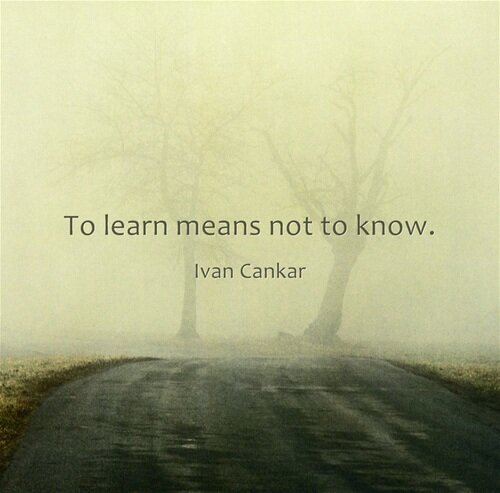Navigating Emotional Obstacles to Learning
By Daron Larson
Confusion is a natural aspect of the learning cycle. It's easy to allow this emotional discomfort to convince us that we lack the capacity to understand concepts and master skills. Steering away from the temporary experience of vulnerability can become habitual.
Mindfulness involves turning toward ordinary experiences while trying to take them less personally—regardless of whether they are pleasant or not. It's about developing habits to break through inertia and move through progressive degrees of challenge and difficulty and trying to avoid getting stuck.
Instructors can draw from their own learning experiences to help their students find their way through the emotional obstacles related to acquiring new knowledge and abilities. They can remind students that confusion and vulnerability are very often signs of growth even though they might feel like evidence of permanent limitations. In this way, they can help clear a path to experiencing the satisfaction of mastery.
Here are some of the ways that developing the skills of attention can impact your relationship to your feelings.
The Power of Erosion
Concentration power, sensory clarity, and equanimity can impact how we respond to our thoughts, feelings, and other physical sensations. Satisfaction can increase as our habit of clinging to pleasant sensory experiences goes down. The degree to which we suffer can decrease as our habitual resistance to discomfort diminishes.
Getting More in Touch with Your Feelings
When we think and talk about our feelings, we are mostly relaying our thoughts through storytelling. The attentional skillset improves our ability to literally feel our feelings directly in the body.
Being able to concentrate helps cultivate a richer emotional palate.
Being able to make sensory distinctions with greater precision makes it possible to let all sensations arise and pass away with less interference.
Finding Your Way Home More Easily
As intimacy with sensory experience develops, it’s not that we don’t experience unpleasant thoughts and feelings. It’s not that we never get overwhelmed. It’s simply that we develop the skill of being able to return to a kind of homeostasis with greater ease.
“Maybe the point of our life’s journey, our spiritual odyssey, is not conquest or perfection, whether spiritual or worldly, but rather the simple transformation into what we have been all along: flesh-and-blood people in a flesh-and-blood world, feeling what people feel and doing what people do. Returning home to what we are. Could this be enough?”
~ Norman Fischer, from Sailing Home: Using Homer’s Odyssey to Navigate Life’s Perils and Pitfalls
Taking Responsibility for Your Own Thoughts and Feelings
There is an enormous benefit to decreasing the habitual interference with our thoughts and feelings. We come to realize that instead of being defined by them, we have the capacity to experience them. This capacity can grow over time. It’s not that we have gotten rid of them, but that we relate to them differently. We conserve the energy we would typically spend wrestling with them. We also come to recognize the impossibility of being able to truly know what someone else is thinking or feeling. We start to accept that what we’re able to observe from the outside will always be merely a fraction of another person’s reality. This insight helps us to avoid defensiveness as a reflex and to focus our energies on resolving communication breakdowns.


